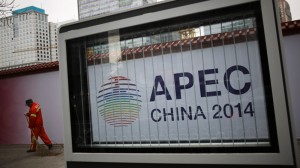Businesses, govts in APEC asked to share agenda for sustaining competitiveness

“Today’s rapidly evolving world is forcing companies to rethink the way they do business in order to stay competitive,” said Abney. “We are seeing companies that want to gain a competitive edge focus more on value and less on low-cost. Governments can encourage a stronger trade-enabling environment with better infrastructure, improved transport networks, modernized border clearance and enhanced cross-border e-commerce for collaborative technology. These are the sorts of concrete measures that can better help businesses contribute to the economic growth brought by healthy international trade flows.”
Abney emphasized the pivotal role that logistics plays in business transformation and creating value in the supply chain. “Through a shared agenda, governments and companies can support APEC’s competitiveness by looking carefully at the competitive advantage that enabling services such as logistics can bring,” said Abney.
“We run 2% of global GDP through our networks on an average day, connecting big and small businesses to the global marketplace. We are seeing market changes driven by growing global demand for a more agile supply chain requiring higher levels of collaboration between companies and their customers. And this is reflected in a study we are launching that represents a change in mindset that we think will resonate with export manufacturers in the region.”
With China’s hosting of APEC drawing leaders from industry and governments to discuss high priority trade issues, UPS released the “Made in China 2.0”™ (MiC 2.0) Readiness Index.
A response to the current market conditions, “MiC 2.0”™ represents a new era of innovation and collaboration for manufacturing. The Readiness Index is based on a survey of 1,000 Chinese companies participating in the global supply chain. It maps out a new path for export manufacturing where focusing more on value and less on low-cost production is emerging as a key trend for leading businesses relying on logistics.
The survey results and related research reveal important traits to the wider Asia-Pacific region that export manufacturing economies will need to consider in a period of economic change. The findings point to reforms needed to retain a leadership position in the manufacturing industry globally. The survey findings also show that while Asia is the most common market for Chinese export manufacturers (73%), more than one half of the respondents (52%) plan to export to Western Europe and a third (34%) to North America.